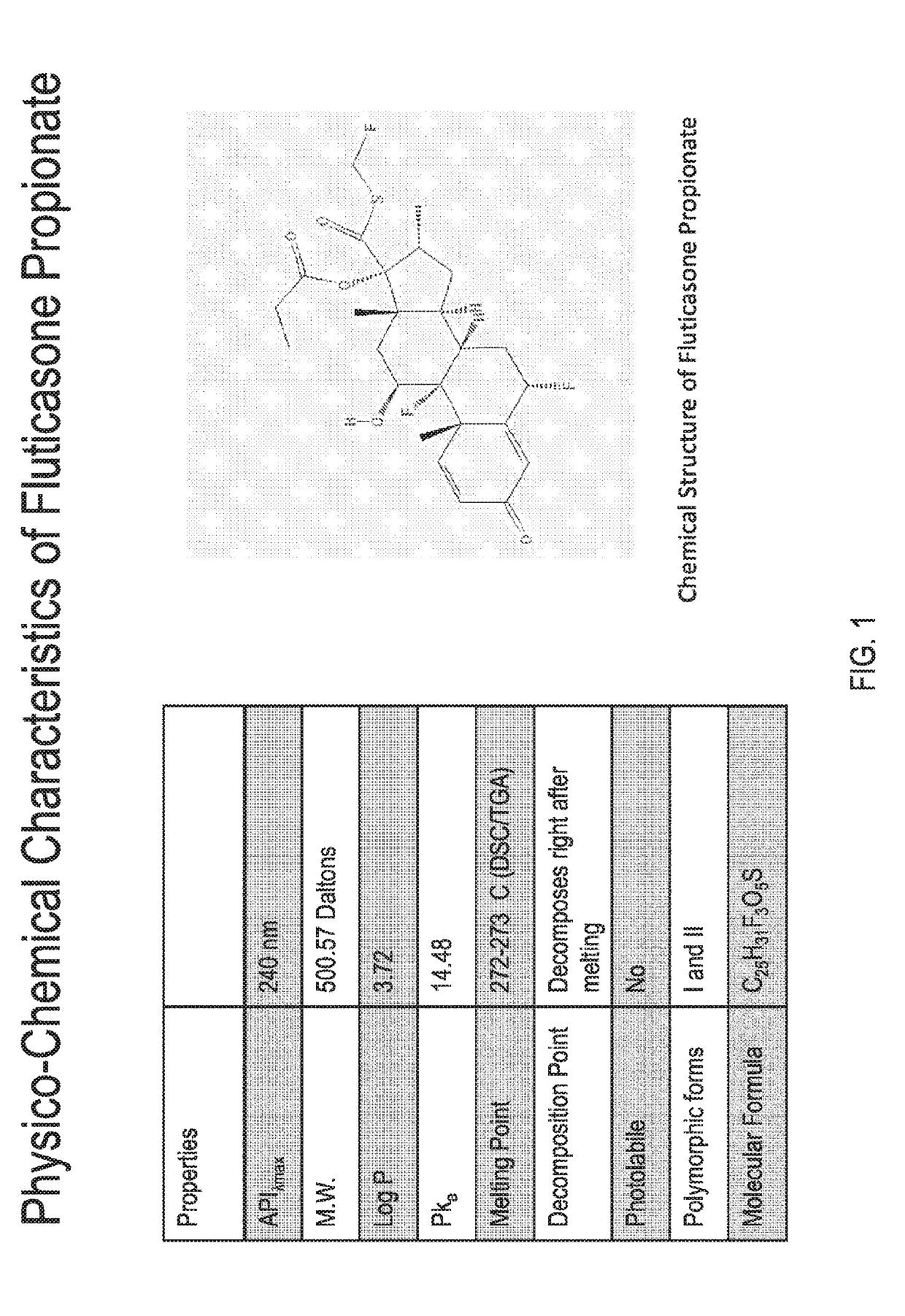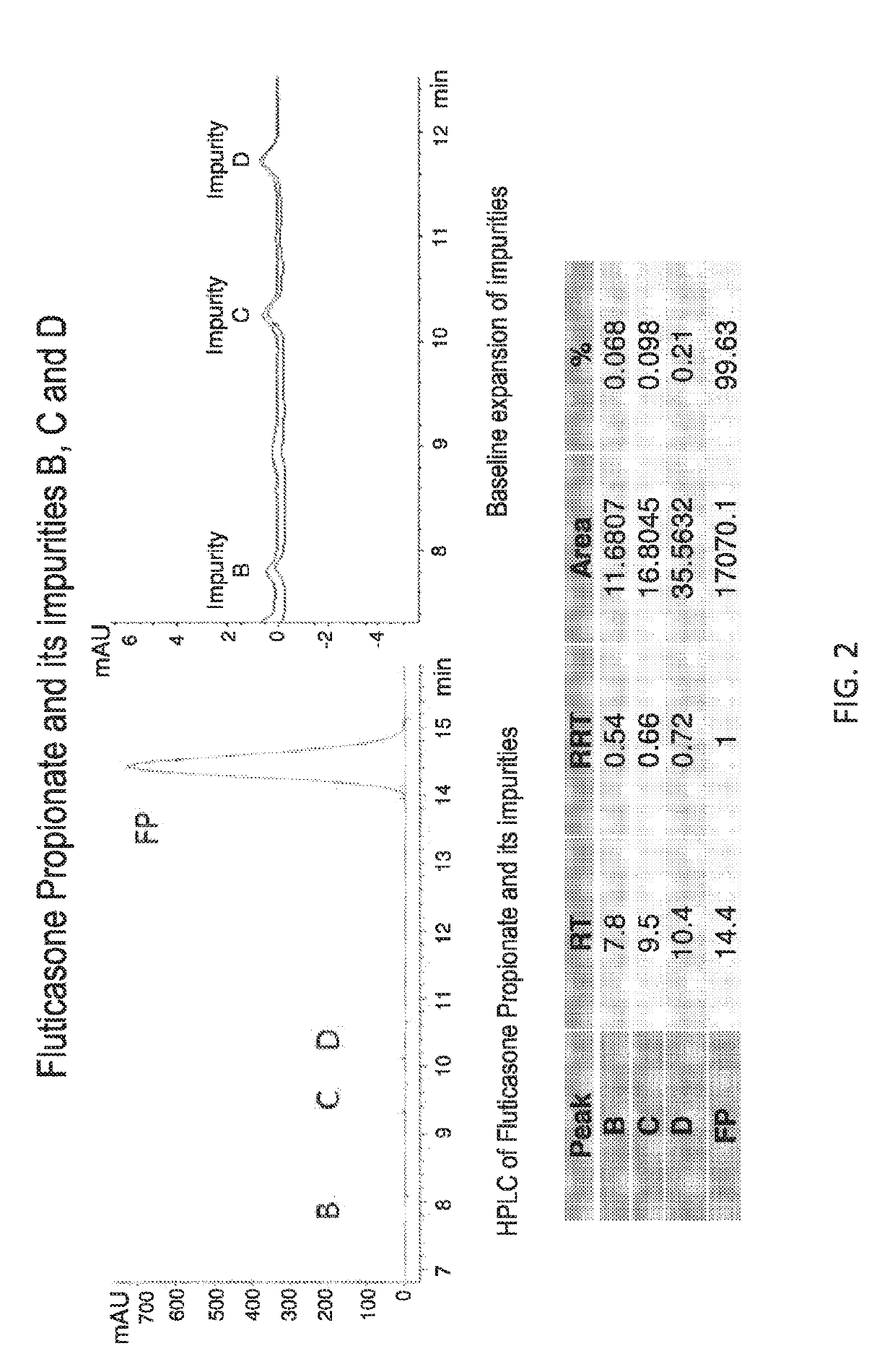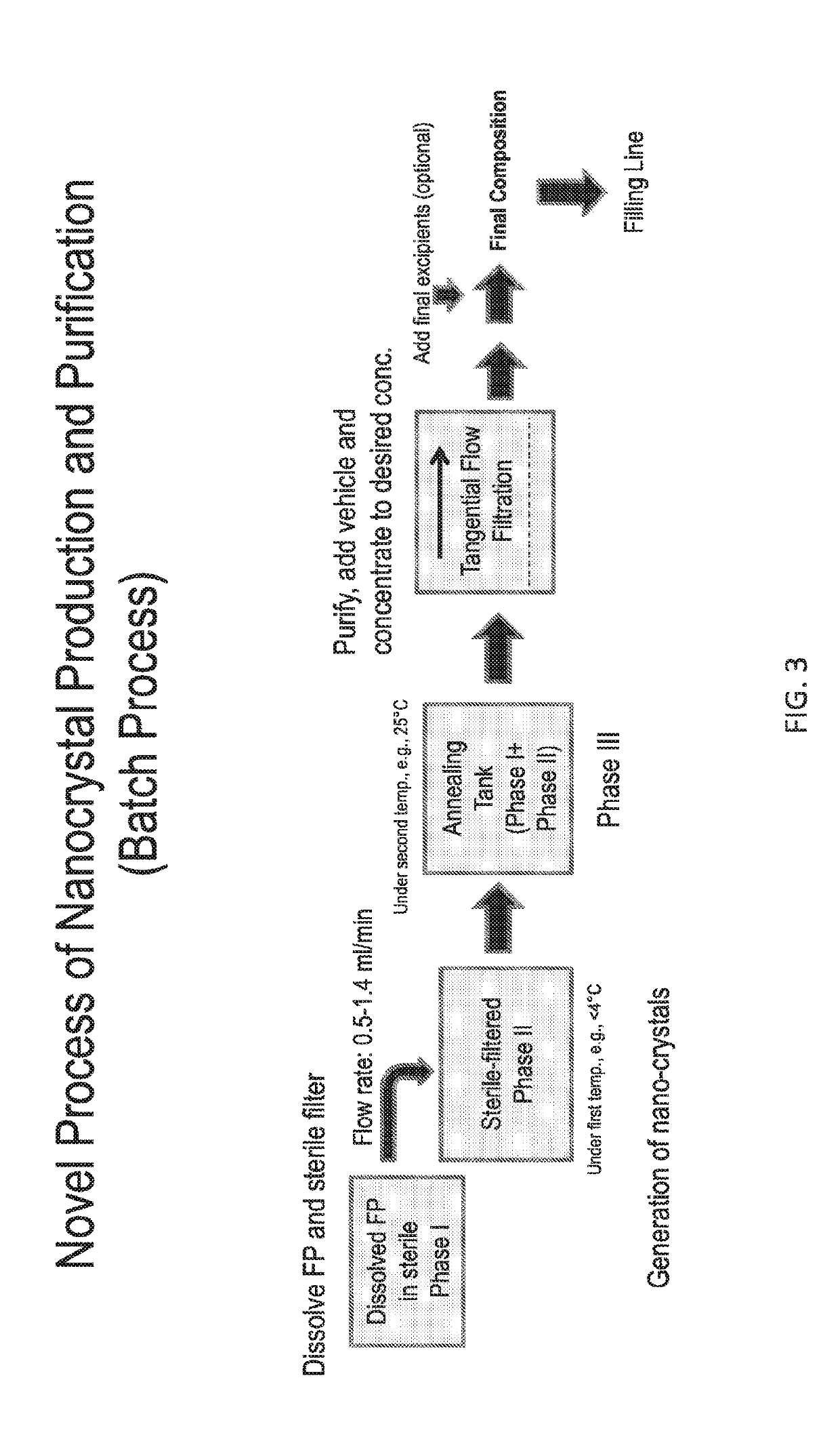Preparations of hydrophobic therapeutic agents, methods of manufacture and use thereof
a technology of hydrophobic and therapeutic agents, which is applied in the field of hydrophobic therapeutic agents and methods of manufacture to achieve the effects of reducing the risk of allergic reactions
- Summary
- Abstract
- Description
- Claims
- Application Information
AI Technical Summary
Benefits of technology
Problems solved by technology
Method used
Image
Examples
example 1
Preparation of 0.1% Fluticasone Propionated Nanoparticles
[0411]Methods: A HPLC Method to Determine the Concentration of Fluticasone Propionate was Developed, with the Details Provided in A.
[0412]The specific composition of Phase I depends upon the solubility of the drug in this phase. The solubility of fluticasone propionate in FDA-approved solvents and excipients was determined by dissolving 10 mg of drug in each solvent, vigorous vortexing and equilibrating overnight at 25 degrees centigrade. The suspension was centrifuged at 10,000 rpm and the supernatant analyzed by RP-HPLC at 239 nm. The solubility and compatibility of fluticasone propionate in each of the solvents was assessed.
[0413]A. HPLC Method Development
[0414]USP methods for the analysis of Fluticasone Propionate (cream, ointment) all utilize an extraction method with hexane, prior to dilution with the mobile phase, most likely due to the presence of excipients that can degrade or block the column, lower resolution on pea...
example 2
Exemplary Nanocrystal Manufacturing Process
[0485]The process to manufacture purified, stable, sterile nanocrystals of fluticasone propionate of size range 400-600 nm includes:
[0486]an in-situ crystallization step, whereupon a sterile phase I solution of fluticasone propionate in PEG400, PPG400, and TWEEN 80® (polysorbate 80) is mixed under sonication, at a flow rate between 1-1.4 ml / min with a sterile phase II solution comprising methyl cellulose between 15 cP -45 cP, benzalkonium chloride and purified water in the ratio 0.2-1 and pH between 5-6, to produce a sterile phase III suspension; and
[0487]an annealing step, whereupon the fluticasone propionate nanocrystals in phase III are held in a holding tank in the temperature range of 25-40 degrees centigrade for a duration range of 30 minutes to 24 hours; and
[0488]a purifying step, whereupon the fluticasone propionate nanocrystals are washed by exchange filtration through a membrane of pore size 0.1-0.22 microns by a sterile aqueous s...
example 3
Nanocrystal Manufacturing Process-Batch Process
[0491]The process described in this Example was applied to produce FP crystals in a size range of 400-600 nm. Particle size optimization using this process is a function of phase I and II composition, sonication output energy, flow rate of phase I, temperature of phase I and II. The flow rate of phase I for all batches (20-2000 g) was 1.43 ml / min.
[0492]The composition of phase I: FP: 0.45% w / w; TWEEN 80° (polysorbate 80): 7.67% w / w; PEG 400: 23.18% w / w, PPG400 (PPG=polypropylene glycol): 68.70% w / w. The composition of phase II: benzalkonium chloride: 0.020% w / w, methyl cellulose 15 cp 0.40% w / w, water (QS to 100%). The composition of phase III dispersion: FP: 0.225% w / w, TWEEN 80° (polysorbate 80): 3.796% w / w, PEG400:11.577% w / w, PPG400: 34.41% w / w, benzalkonium chloride 0.01%, methyl cellulose (MC 15 cP): 0.2% w / w, water Q.S. to 100%. The volume ratio of Phase I to Phase II was 1:1 for this batch process.
[0493]The temperature of each p...
PUM
 Login to View More
Login to View More Abstract
Description
Claims
Application Information
 Login to View More
Login to View More - R&D
- Intellectual Property
- Life Sciences
- Materials
- Tech Scout
- Unparalleled Data Quality
- Higher Quality Content
- 60% Fewer Hallucinations
Browse by: Latest US Patents, China's latest patents, Technical Efficacy Thesaurus, Application Domain, Technology Topic, Popular Technical Reports.
© 2025 PatSnap. All rights reserved.Legal|Privacy policy|Modern Slavery Act Transparency Statement|Sitemap|About US| Contact US: help@patsnap.com



